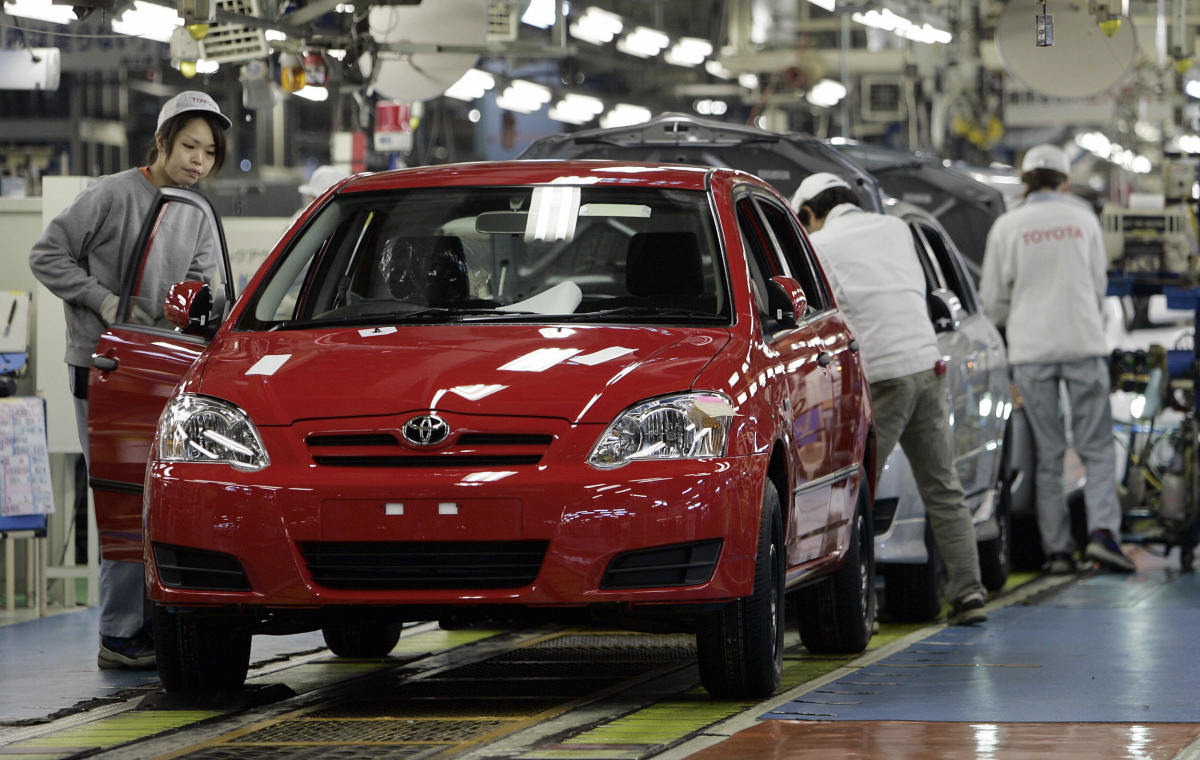
As the saying goes, you can't tell a rich person by what's parked in their garage.
That’s because truly high net-worth individuals — we’re talking millionaires and up — don’t feel the need to impress others by driving fancy new cars.
They don’t live in Beverly Hills or on Park Avenue, either; instead, they're often your neighbors residing modestly next door. These kinds of people live below their means, save their money, and create generational wealth through appreciating investments held for the long term.
At least that’s the premise of “The Millionaire Next Door,” a best-selling financial book from the 1990s by Thomas J. Stanley and William D. Danko, who spent decades profiling the wealth-building habits of the truly affluent.
💰💸 Don’t miss the move: SIGN UP for TheStreet’s FREE Daily newsletter 💰💸
According to Stanley and Danko, millionaires rarely drive flashy cars, but rather spend their time and money researching and buying quality used vehicles.
The book specifically mentions full-sized American vehicles like Ford (F) , Cadillac (GM) , Lincoln, and Jeep, although many of those models have been phased out since the book's first publication, and most car brands now feature a mix of global-made parts.
However, the fundamental motivations fueling high net-worth individuals, such as how they value financial security over consumerism — even when shopping for automobiles — are admirable traits that still ring true today.
Or to put it another way, if millionaires purchase used cars, shouldn't you?
Related: What is the Great Wealth Transfer? When does it happen?
Why buying used cars makes financial sense
Just like a house, a car is one of the biggest purchases a person makes in their lifetime. But unlike a house, a car starts losing value the moment you sign on the dotted line. Studies have shown that a new car depreciates 10% the minute you drive it off the lot and up to 50% after only three years of ownership.
Add to it the fact that used cars are simply kinder on your wallet than owning new vehicles, and you can see why there are more used cars sold every year. We’re talking a lot more, too: According to Statista, nearly 40 million used cars were sold in 2023, compared to just 15.5 million new vehicles.
More automotive content:
- Consumer Reports: The 10 best SUVs of 2024
- The top 10 electric SUVs, according to Consumer Reports data
- The safest used cars for teens & families: Consumer Reports
Of course, purchasing a lemon would be just about the worst financial move anyone could make, regardless of their income level, and that’s where Consumer Reports (CR) becomes a critical component of your car-buying process.
The product testing authority has been around since 1936, covering everything from appliances to baby gear and electronics.
It carries a lot of weight in the automotive realm, as it spends countless hours test-driving vehicles at its 327-acre Auto Test Center in Colchester Connecticut. It also surveys its six million members on qualitative factors like owner satisfaction and reliability before compiling this data together into comprehensive reports.
View the original article to see embedded media.
What’s so special about CR’s used car ratings?
The eight cars and SUVs that made Consumer Reports' list of best used vehicles under $5,000 scored well on performance tests and rated high in owner reliability, retaining many of the qualities that made them good new buys when CR first recommended them — even decades after the fact.
Related: Consumer Reports’ best American cars, trucks & SUVs of 2024
Ranking factors also included good fuel economy, smooth ride quality, and powerful engines. Where possible, CR made note of important safety features in place when the vehicles were first introduced, such as electronic stability controls (ESC). This feature helps drivers prevent skidding and losing control of their vehicles, although the National Highway Traffic Safety Administration (NHTSA) did not require all vehicles to have ESC until 2012.
Sure, you might have to manually roll up their windows, but isn't a little extra elbow grease worth the peace of mind you can get knowing you bought something worthwhile without spending a lot of money doing it?
Here's Consumer Reports' list:
The best used cars and SUVs under $5k, according to Consumer Reports
These are the eight used vehicles available for under or around $5,000 that come tightly recommended by Consumer Reports, including four sedan models, a compact SUV, and two pickup trucks.
Fun fact: Seven of the eight vehicles on this list are manufactured by Toyota, and all eight come from Japanese automakers!

TOSHIFUMI KITAMURA/AFP via Getty Images
Toyota Corolla, 2003–2005
- Price range: $4,525–$4,925
- Owner-reported MPG: 30 mpg
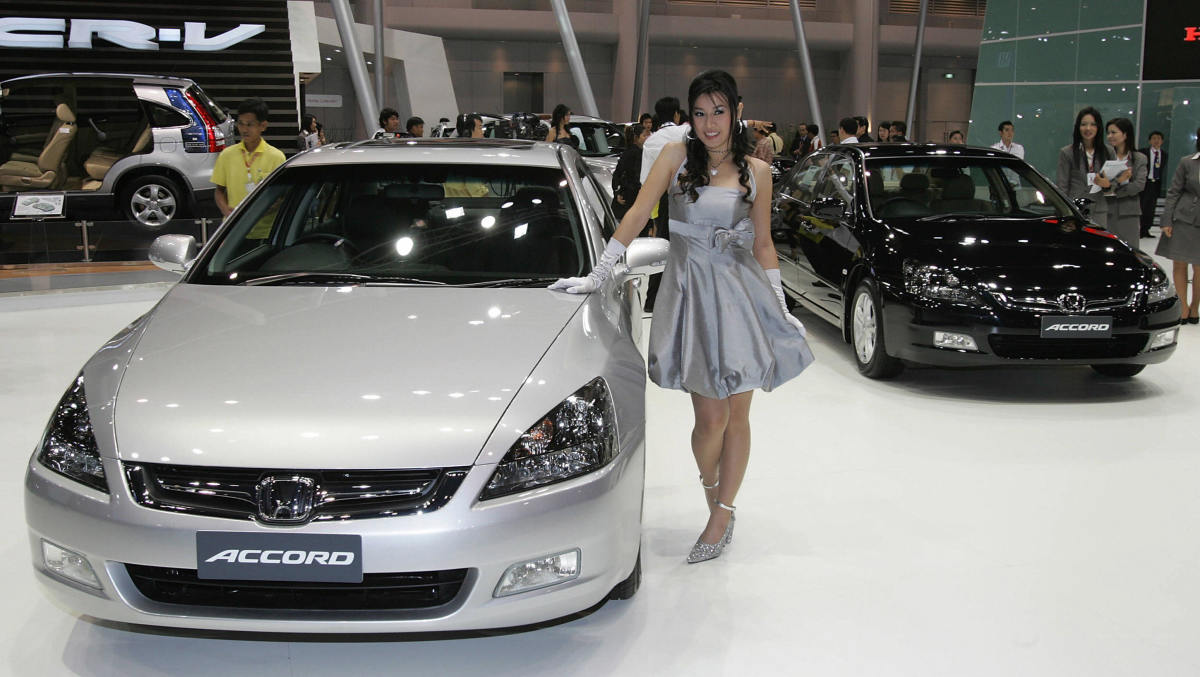
PORNCHAI KITTIWONGSAKUL/AFP via Getty Images
Honda Accord, 2006
- Price range: $4,525–$5,575
- Owner-reported MPG: 25 mpg
*Consumer Reports notes that the V6 version has standard ESC
Related: Consumer Reports: Cheapest cars to maintain over 10 years
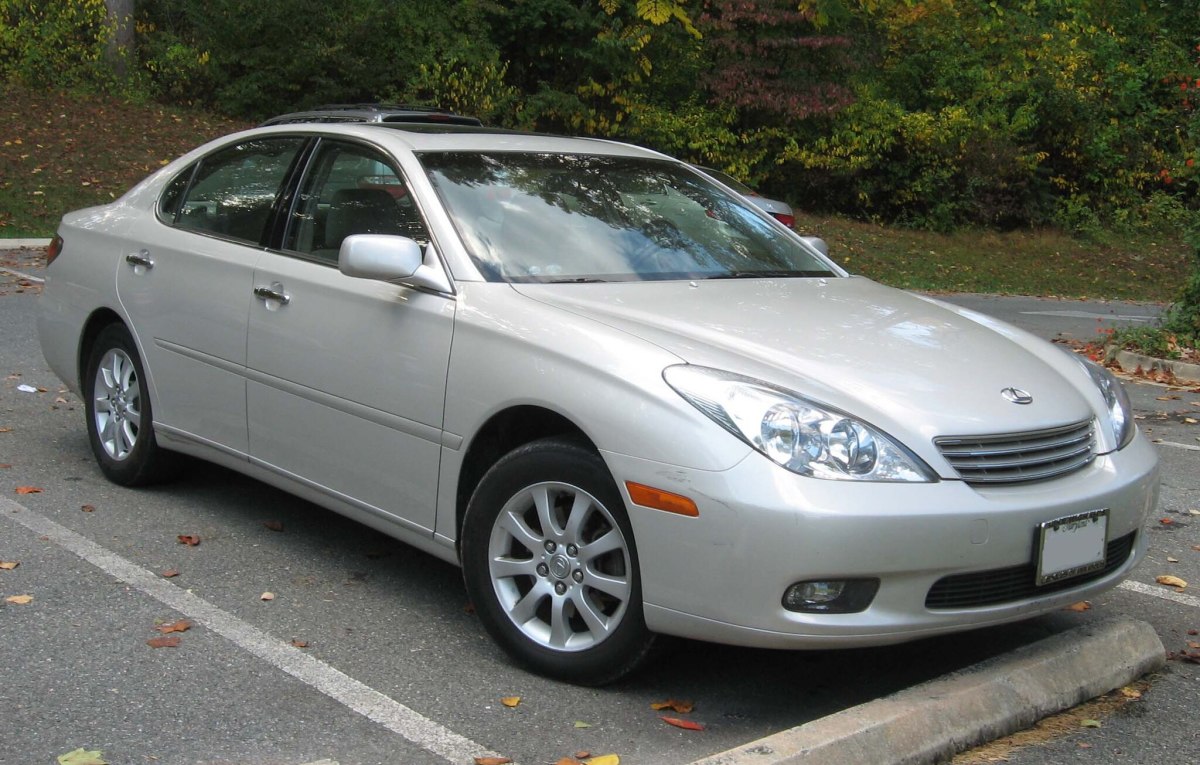
IFCAR, Public domain, via Wikimedia Commons
Lexus ES, 2004
- Price range: $5,300
- Owner-reported MPG: 21 mpg
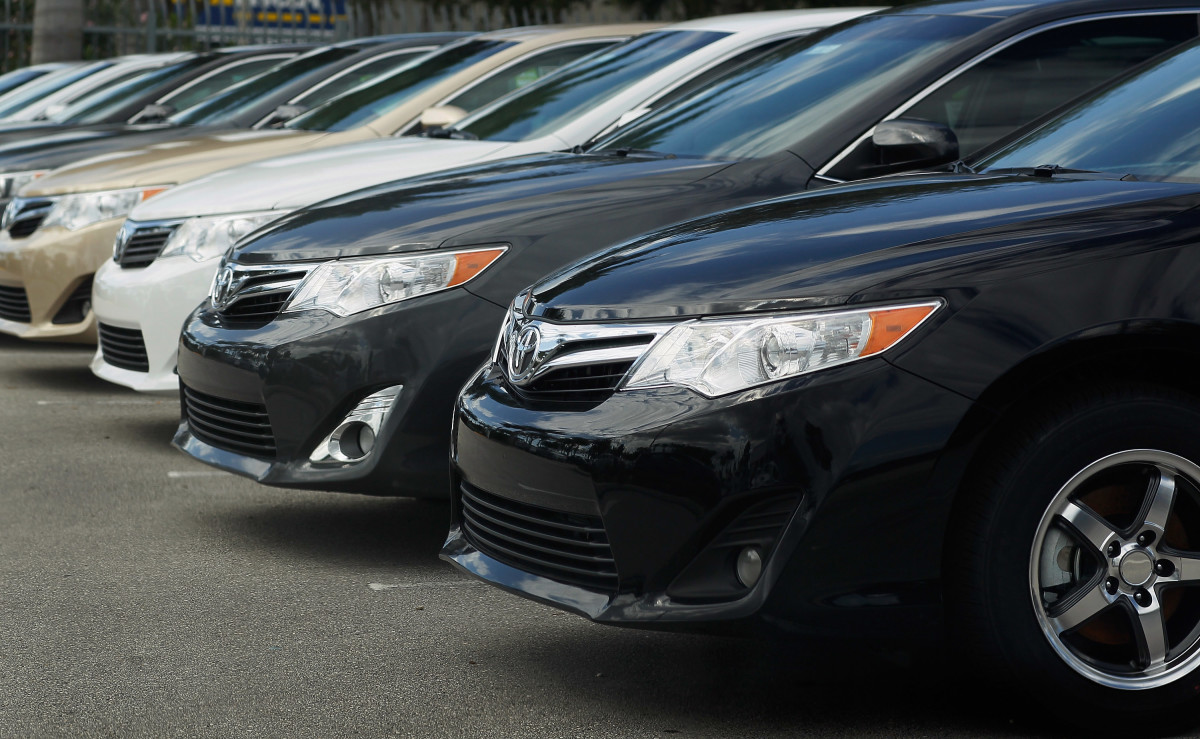
Joe Raedle/Getty Images
Toyota Avalon, 2002, 2004
- Price range: $4,675–$4,900
- Owner-reported MPG: 24 mpg
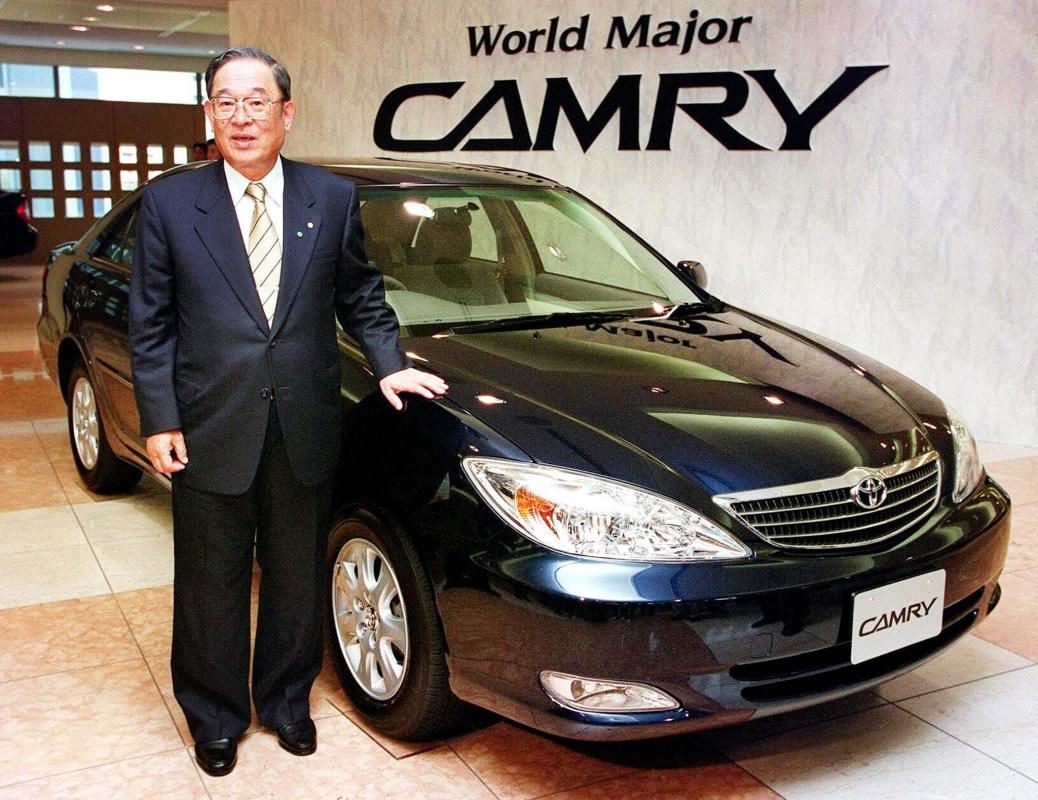
STR/AFP via Getty Images
Toyota Camry, 2001, 2005
- Price range: $5,100–$5,275
- Owner-reported MPG: 25 mpg
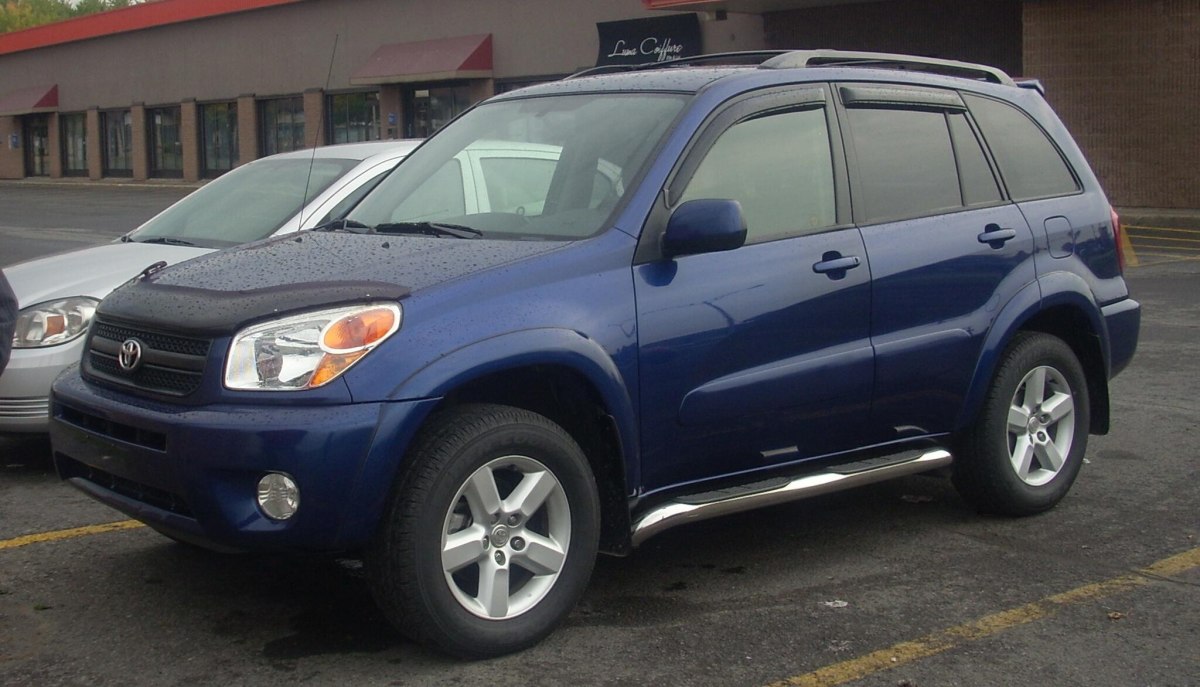
Bull-Doser, Public domain, via Wikimedia Commons
Toyota RAV4, 2004
- Price range: $4,800–$5,400
- Owner-reported MPG: 23 mpg
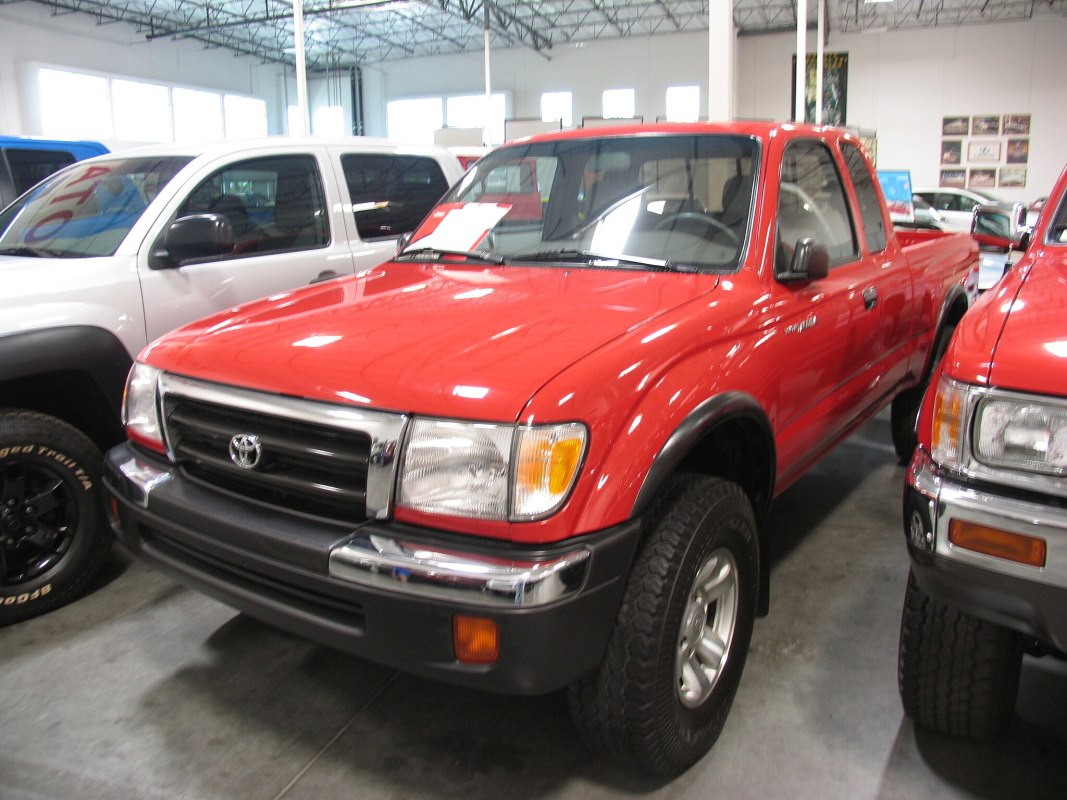
Jacob Frey 4A, CC BY 2.0, via Wikimedia Commons
Toyota Tacoma, 2000–2001, 2004
- Price range: $3,600–$8,675
- Owner-reported MPG: 19 mpg
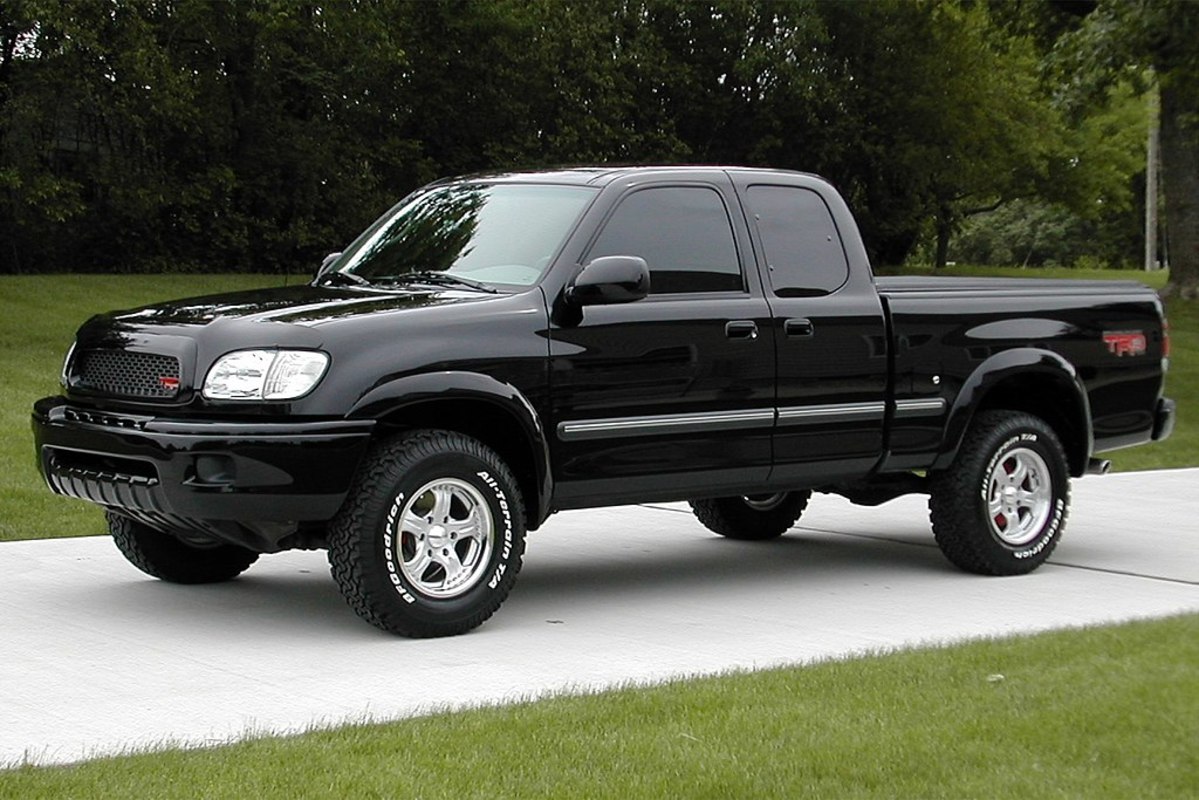
Peidster at English Wikipedia, Public domain, via Wikimedia Commons
Toyota Tundra, 2002–2005
- Price range: $4,750–$8,725
- Owner-reported MPG: 15 mpg
Related: Veteran fund manager sees world of pain coming for stocks







